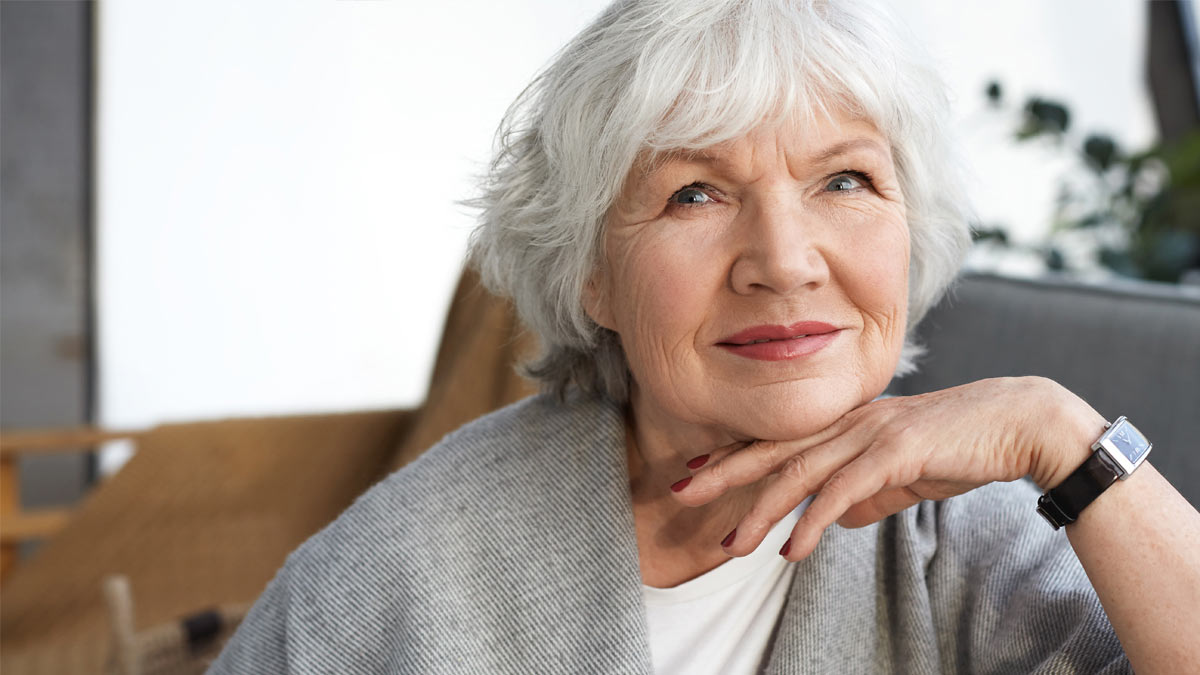How can you prepare yourself to battle the potentially lethal effects of COVID-19? Eating healthy, exercising regularly and avoiding tobacco products would be a good start. In other words, if you do contract the coronavirus, you’ll be much better off if you’ve been following the guidelines that often lead to good health, even as you age.
The numbers show that older people are much more likely to die when COVID-19 strikes, but age isn’t necessarily the most important factor in determining who recovers and who doesn’t, according to Erika Blank, M.D., at the Medical University of South Carolina. Underlying conditions such as diabetes, high blood pressure, cancer, obesity, chronic lung disease, vascular disease, liver disease and kidney disease also play a vital role in the life-or-death equation.
“There’s so much confusion and mixed messages out there,” said Dr. Blank, who is board-certified in internal medicine and lifestyle medicine. “When you look at the death certificates, 6% only had COVID-19. The rest had other conditions. But COVID-19 was the precipitating factor in those deaths.”
“Age is not the only factor, but it does play a role,” added Jerome Aya-Ay, M.D., a board-certified physician with Palmetto Proactive in Spartanburg.
Both medical professionals said healthy people are less likely to succumb to COVID-19, regardless of their age.
“What makes you healthier to face COVID-19 also makes you healthier to live the rest of your life,” Dr. Blank pointed out.
For example, she said if you have already been diagnosed with prediabetes, now would be a good time to make the lifestyle changes necessary to avoid diabetes. That would include a regular exercise regimen and a diet that’s short on processed food, fast food and sugar and long on lots of vegetables, fruits, whole grains, beans, nuts and seeds. She noted that many people are avoiding restaurants during the pandemic and preparing healthier meals at home.
And she added that exercise is a “treatment for so many things.”
“It can help with diabetes and blood pressure and help manage the stress that might be increased right now,” she said. “And there is evidence that regular exercise can prevent symptoms from upper respiratory infections.”
Dr. Aya-Ay agreed, pointing out that 30 to 45 minutes of exercise at least four days a week will reduce your risk of heart disease and strengthen your immune system, an important factor in determining whether you become a victim of the coronavirus.
“All you have to do is walk, increase your heart rate and get your circulation going,” he said. “You don’t have to have a gym membership.”
Dr. Blank pointed out that in some cases, the coronavirus has been more severe in people with low levels of vitamin D, and she said she recommends that her patients take a supplement, with higher doses in the winter when there is less sunlight. She added that it also would be a good idea for people to get a flu shot this year, not to prevent COVID-19 but to help eliminate one more underlying issue that might make a bout with the virus worse.
Is it necessary for everyone to be tested for COVID-19? Maybe not, according to Dr. Aya-Ay. He said if you have one or more of the symptoms of the virus – fever, chills, body aches, cough, headache, diarrhea, loss of taste and smell – you should find out for sure if you have COVID-19. He said if he suspected that he might have been exposed to the virus but still felt fine, he would simply quarantine for 14 days.
“We want to make sure we have enough resources for the people who have symptoms and need the test,” he commented.
Both physicians agreed on another important aspect of the pandemic – that severe precautions some people are taking to avoid the coronavirus might be affecting their health and well-being. Of course, everyone should practice social distancing, wash their hands regularly and wear a mask when appropriate. But Dr. Aya-Ay said people who overdo it by sitting alone in their house all day could be causing themselves unnecessary medical and psychological problems.
“Loneliness increases morbidity and mortality. If you were anxious and depressed before, it has increased now,” he said. “We’re seeing a lot of people with depression, and suicide rates have increased.”
“I’ve been seeing a lot of patients with worsening anxiety, depression and isolation. It’s taking a toll on their mental and physical health,” Dr. Blank said, adding that she encourages people to continue to connect with others, even if they don’t feel comfortable meeting in person.
She added that she recently was talking with a patient in his 70s who said he and his wife were afraid to take walks on the beach.
“That would be a great thing for them to do right now,” she said. “Walking on the beach isn’t risky if there aren’t a lot of people around. They are outdoors in the sunlight, which is something that is more beneficial than a risk at this time.”
“We don’t have control over everything,” she concluded. “We should focus on the things we can control.”







